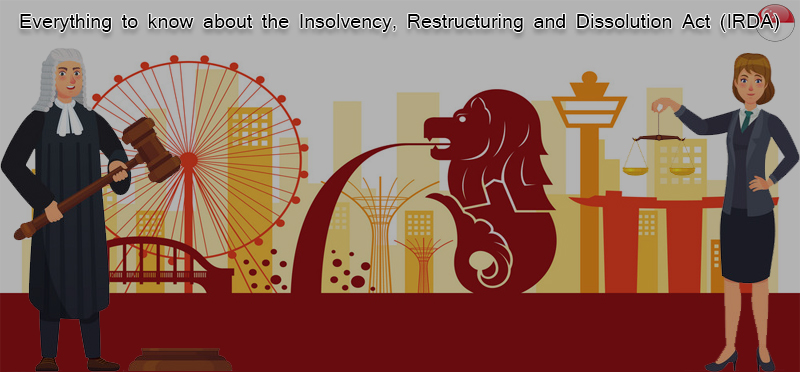
The Insolvency, Restructuring and Dissolution Act, 2018, better known as IRDA, became active in Singapore on 30 July 2020. The Act introduces reforms to the country's corporate insolvency and restructuring regime. It consolidates and modifies the existing Companies Act and Bankruptcy Act to promote Singapore as a more regional corporate hub.
The Act consists of 72 parts, and the significant takeaways are –
- Provisions regarding the scheme of arrangement.
- Provisions regarding receivership.
- Regulations regarding judicial management and winding-up.
- Provisions regarding cross-border insolvency.
- Bankruptcy
Insolvency and debts have plagued the present economy.
Sharp Increase
We may observe a sharp increase in companies filing for bankruptcy and on the brink of insolvency, owing to the pandemic as well.
The Singapore Government implemented the new laws at a crucial time, where several individuals and organizations can benefit and survive under the new IRDA and the COVID-19 Act.
The IRDA initiated a dedicated framework for licensing and registration of insolvency practitioners like accountants and solicitors. They can act as a mediator or judicial managers in the proceedings.
The insolvency practitioners require applying for a license during which they can undertake insolvency and debt restricting cases.
However, they must forfeit and transfer any duties taken provisionally on the rejection of the application.
The legislation also enables judicial managers and legislators to intervene in third-party funding agreements for disputes involving insolvent companies and the parties that have wronged them.
They address unfair preference transactions, fraudulent trading, and credit extortions and pursue a suitable course of action.
Directors exercise the power of decision making on behalf of all the shareholders’ interests.
However, it becomes more comprehensive in a situation of insolvency or bankruptcy.
Wrongful trading is a practice of incurring debts when such circumstances arise. The directors’ duties extend to company creditors as the company is running on their investments.
Hence, the IRDA protects creditors from investing in a company unlikely to fulfill their future returns.
How it helps a company’s debt restructuring?
Debt repayment plan
The IRDA mandates the court to undertake the case of a debtor and authorize the enhancement of the debt repayment plan.
They assign an official to evaluate their situation.
The debtor must be eligible with a debt amount within the legal limits and making no fraudulent claims. If the court approves the case, the debtor is entitled to provisions under the debt repayment plan.
The duration of repayment is up to 5 years, and notify the creditors of the terms.
Hence, the company is protected against creditors taking unfair remedial measures against them.
It gives them enough time and opportunities to recover from financial losses and repay the debt amount.
Please find out more about the IRDA and its provisions by filling up the form on our website.
Get in touch with expert solicitors and legal consultants to navigate through your insolvency and bankruptcy queries.
